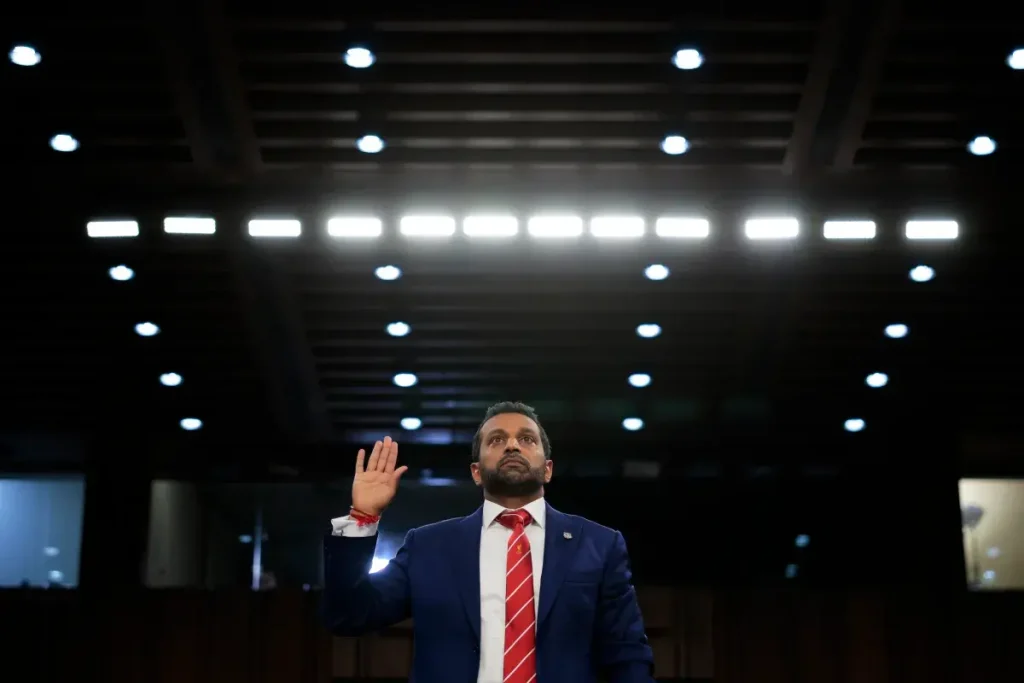FBI Cuts Ties with ADL: A Reflection of Political Tensions and Shifting Relationships
In a decisive move that highlights the increasingly polarized American political landscape, FBI Director Kash Patel announced the bureau would be severing its long-standing relationship with the Anti-Defamation League (ADL). This decision, rooted in the ADL’s previous association with former FBI Director James Comey, represents more than just an administrative change—it symbolizes the growing tension between government institutions and advocacy organizations in today’s charged political environment. The ADL responded with a measured statement expressing “deep respect for the Federal Bureau of Investigation and law enforcement officers at all levels” while reaffirming its commitment to protecting Jewish people amid “an unprecedented surge of antisemitism.” This exchange occurs at a time when the ADL has faced mounting criticism from conservative voices, particularly after Tesla CEO Elon Musk highlighted the organization’s 2017 classification of a movement called “Christian Identity” as extremist, which some interpreted as labeling Christians broadly as extremists.
The controversy deepened as Patel explained his rationale, stating that under Comey’s leadership—who was recently indicted by a federal grand jury over testimony to a Senate committee in 2020—FBI agents had been “embedded” with the ADL, creating a problematic blurring of boundaries between law enforcement and advocacy work. “James Comey wrote ‘love letters’ to the ADL and embedded FBI agents with them – a group that ran disgraceful ops spying on Americans,” Patel declared on social media platform X. “That era is OVER. This FBI won’t partner with political fronts masquerading as watchdogs.” His characterization of the ADL as a “political front” rather than a legitimate civil rights organization marks a significant shift in how a major government agency perceives an organization that has worked on anti-discrimination efforts for over a century.
This tension comes at a particularly sensitive moment for the ADL, which recently “retired” its Glossary of Extremism following intense criticism from conservative figures. The controversy erupted when Musk and others objected to the ADL’s classification of Turning Point USA, co-founded by Charlie Kirk, who was tragically shot and killed while speaking at Utah Valley University on September 10. The ADL acknowledged that some entries in its glossary were outdated, stating, “We also saw a number of entries intentionally misrepresented and misused.” This concession reflects the challenges facing organizations that monitor extremism in a climate where definitions of extremism themselves have become politically contentious. The ADL’s decision to withdraw the glossary represents an attempt to recalibrate its approach while maintaining its core mission.
The broader context of this rift between the FBI and ADL reveals the increasingly complex relationship between government institutions and civil society organizations in America. As political polarization intensifies, the very notion of what constitutes extremism or hate speech has become subject to partisan interpretation. The ADL, which has historically positioned itself as a nonpartisan monitor of antisemitism and other forms of hatred, now finds itself navigating accusations of political bias. The organization’s statement emphasizing its commitment to protect “all Americans regardless of their ancestry, religion, ethnicity, faith, political affiliation or any other point of difference” appears to be a direct response to allegations that it has become politically selective in its advocacy work.
For the FBI, this decision represents part of what Patel described as a broader review of partnerships with external organizations. The stated goal is to ensure the bureau’s independence and avoid perceptions of political influence—a priority that reflects the intense scrutiny law enforcement agencies face in the current political climate. The bureau’s shift away from established relationships with organizations like the ADL signals a recalibration of how government agencies engage with civil society in polarized times. This development raises important questions about how law enforcement can effectively monitor threats while maintaining political neutrality, particularly when the very definition of extremism has become contested territory in American political discourse.
As both institutions adjust to this new reality, the implications extend beyond their specific relationship. The ADL’s reassessment of its public education and engagement approaches, symbolized by the retirement of its controversial glossary, indicates the challenges facing organizations that monitor extremism in today’s America. Meanwhile, the FBI’s review of external partnerships reflects the broader tensions between maintaining institutional independence and leveraging civil society expertise. At a time of rising antisemitism and heightened concerns about political and religious extremism, the breakdown of established cooperation between major institutions tasked with monitoring and responding to these threats raises significant questions about how America will address these challenges moving forward. This situation serves as a microcosm of the larger struggle to maintain functional cooperation across political divides in service of shared national security and civil rights objectives.


